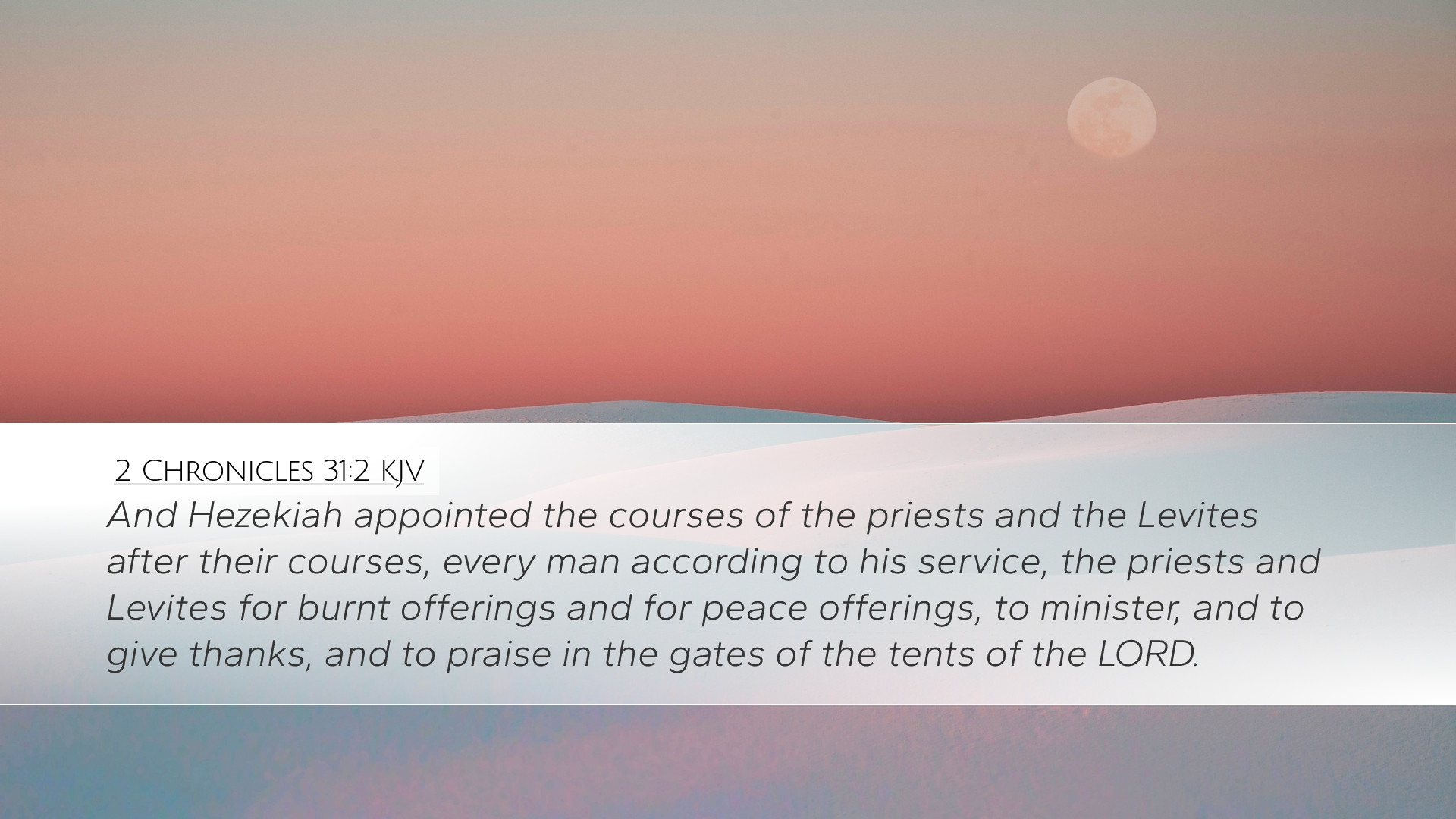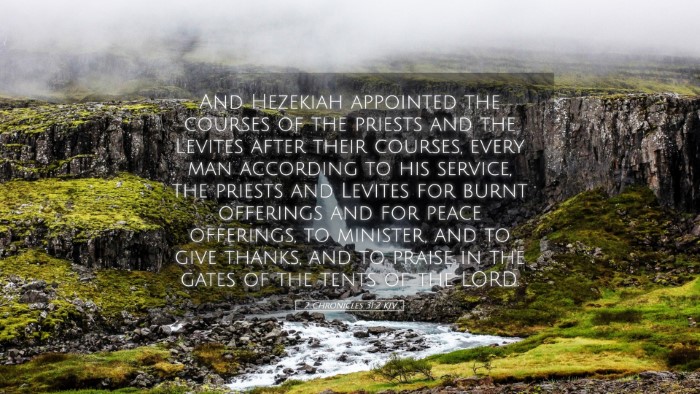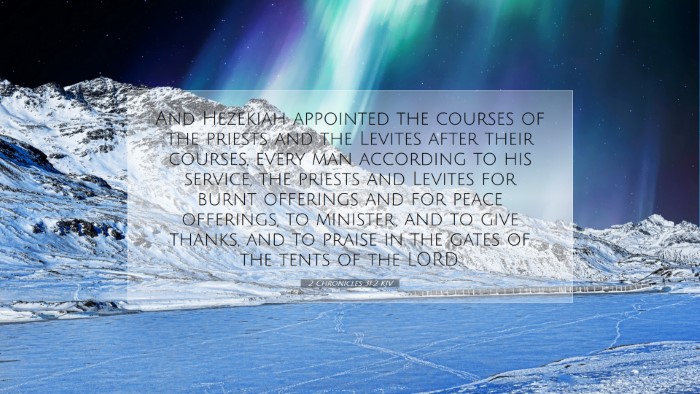Commentary on 2 Chronicles 31:2
Introduction
The verse 2 Chronicles 31:2 provides a significant insight into the religious reforms initiated by King Hezekiah in the kingdom of Judah. This commentary synthesizes insights from various public domain commentaries to explore the depth of this verse and its implications for worship and leadership in biblical settings.
Contextual Background
2 Chronicles, as a historical account, emphasizes the reigns of the kings of Judah, focusing particularly on those who led their people in faithfulness to God. King Hezekiah stands out as a reformer who sought to bring the nation back to genuine worship. The chapter recounts his measures to restore the temple worship and purification practices, isolating the spiritual state of Judah during his reign.
Analysis of 2 Chronicles 31:2
Text: “And Hezekiah appointed the courses of the priests and the Levites after their courses, every man according to his service, the priests and Levites for burnt offerings and for peace offerings, to minister, and to give thanks, and to praise in the gates of the tents of the LORD.”
Roles of Priests and Levites
In this verse, we see King Hezekiah taking deliberate action to restore organized worship according to the Mosaic law. This highlights the importance of both the priests and the Levites in the religious life of Israel. Here are key insights:
- Divine Order: Matthew Henry emphasizes that the appointment of the priests and Levites shows a commitment to divine order in worship. Leadership was essential in maintaining fidelity to God's commandments.
- Restoration of Service: Albert Barnes notes that the designation of roles according to their courses reflects an effort to re-institute traditional practices that had fallen into neglect.
- Unity of Worship: Adam Clarke points out that the systematic organization of worship activities fosters unity among the priests and Levites, allowing them to minister together effectively.
Purpose of the Appointments
The specific mention of roles for burnt offerings and peace offerings illustrates the worship's sacrificial nature. Each offering had spiritual significance:
- Burt Offerings: These represented atonement for sin and complete surrender to God.
- Peace Offerings: These were a sign of fellowship and gratitude, denoting harmony with God.
Hezekiah reinstated these sacrifices to reconnect the people with God’s covenant promises and the importance of worship in maintaining that relationship.
Theological Implications
By analyzing the practices established by Hezekiah, important theological implications emerge, particularly concerning worship, community leadership, and accountability:
- Worship as a Communal Activity: The duties outlined emphasize the collective aspect of worship, requiring participation and synchronization among the leaders.
- The Role of Leadership: Leaders are responsible for guiding the community in faith. Hezekiah's actions serve as a model for church leaders today in their responsibility to shape conducive environments for worship.
- Restoration and Renewal: This passage illustrates that moments of spiritual renewal often require intentional acts of restoration through recognized leadership and traditional practices.
Exhortations for Contemporary Application
As pastors, students, theologians, and Bible scholars reflect on this verse and the accompanying commentary insights, several exhortations can be derived:
- Commit to Order in Worship: Just as Hezekiah established order among priestly duties, church leaders should seek to create structure in worship that honors God.
- Recognize the Importance of Community: Worship is not an isolated act but a community engagement in bringing glory to God.
- Value Tradition along with Innovation: Embrace the rich traditions of worship while remaining open to innovative expressions of faith that resonate with contemporary audiences.
Conclusion
The actions of King Hezekiah as recorded in 2 Chronicles 31:2 serve as a compelling reminder of the necessity of order, community, and sacred practices in worship. This commentary has sought to provide a holistic view, integrating the insights of classical theologians to inspire and challenge modern worship leaders and scholars alike.


